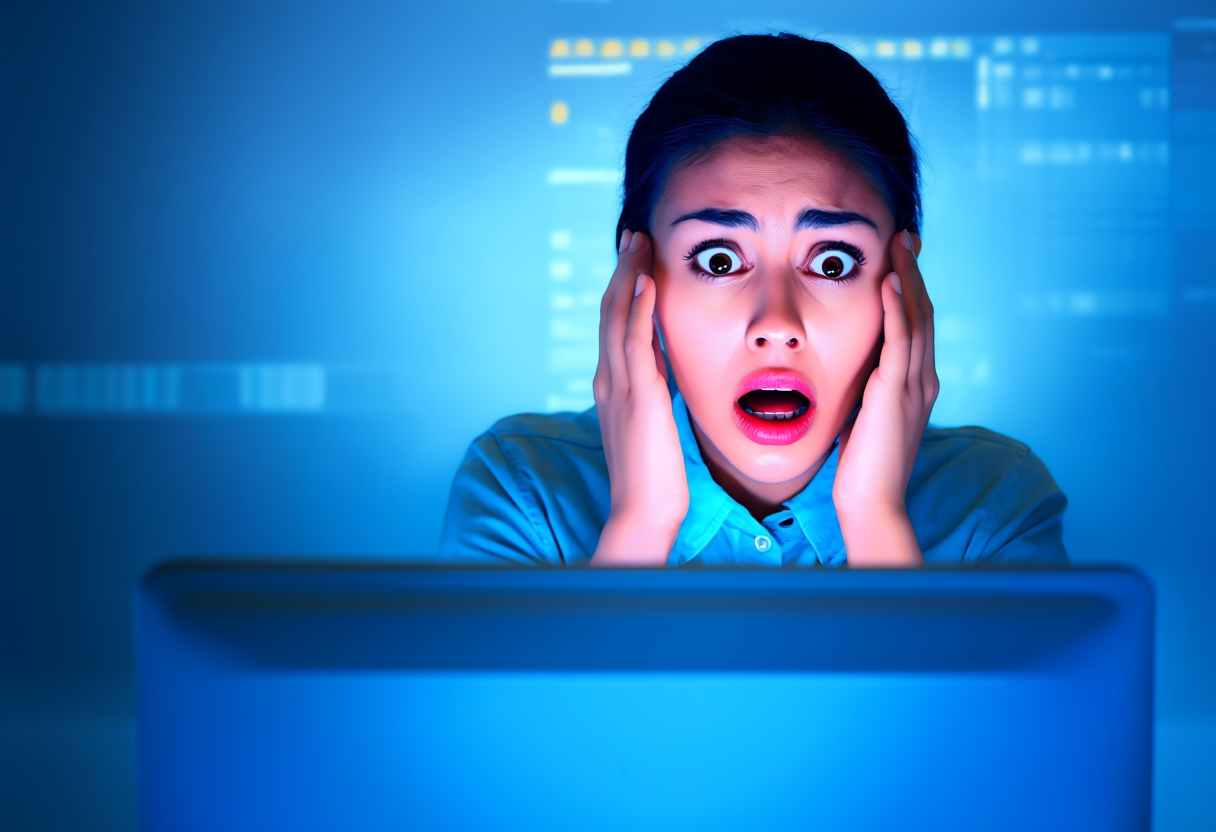The WHO has issued a stern warning to global citizens: stop self-diagnosing based on internet searches. The guideline includes a recommendation to consult a real doctor or, at the very least, “someone who didn’t get their degree from WebMD.”
GENEVA, Switzerland — In a desperate attempt to stem the rising tide of global hypochondria, the World Health Organization (WHO) has released a new set of guidelines urging people to “stop googling their symptoms, because honestly, you’re not a doctor.” The announcement comes after a worldwide survey revealed that 87% of internet users now believe they possess the diagnostic skills of a seasoned medical professional, thanks to a combination of search engines and questionable health blogs.
In a strongly worded statement, WHO Director-General Dr. Tedros Adhanom Ghebreyesus expressed concern over the growing phenomenon, which he dubbed “Dr. Google Syndrome.” According to Dr. Tedros, the syndrome has led to an unprecedented rise in self-diagnosis, with millions of people incorrectly concluding they have rare and exotic diseases after just a few minutes of online research. “One minute you’re checking a rash on your arm, and the next, you’re convinced you have a tropical disease last seen in a 19th-century pirate novel,” Dr. Tedros said, shaking his head.
The WHO’s new guidelines are part of a broader campaign to encourage people to seek professional medical advice rather than relying on the internet, where information can be incomplete, misleading, or just plain wrong. The guidelines include several key recommendations:
- Consult a Real Doctor First: The WHO suggests that before searching online, individuals should consult with a licensed medical professional—preferably one who didn’t earn their degree via a pop-up ad.
- Limit Your WebMD Visits to 10 Minutes: If you must google, the WHO recommends a strict 10-minute time limit on websites like WebMD. Any longer, and you risk spiraling into a black hole of worst-case scenarios, where a common cold becomes the early stages of lycanthropy.
- Stop Using Search Engines as a Magic 8-Ball: The guidelines caution against typing symptoms into search engines with the expectation of a definitive answer. “It’s not a magic 8-ball; it’s a search algorithm,” the document states, reminding users that search engines prioritize clicks over accuracy.
- Ignore Health Forums Run by ‘Concerned Citizens’: The WHO also advises avoiding health forums where “concerned citizens” offer advice based on their own experiences, most of which involve homemade remedies involving essential oils and good vibes. “Just because it cured Brenda’s cousin’s dog’s skin condition doesn’t mean it’ll work for you,” the WHO notes.
- Understand the Limits of Online Symptom Checkers: The guidelines clarify that while symptom checkers can be useful for gathering information, they should not replace a visit to a healthcare provider. “They’re not diagnostic tools—they’re entertainment,” the WHO document states, adding that even Netflix’s new AI-powered symptom checker shouldn’t be taken too seriously.
Dr. Tedros emphasized that while the internet is an invaluable resource for health information, it’s important to remember that not all sources are reliable. “Just because something is online doesn’t mean it’s true. For example, there’s a persistent rumor that drinking bleach cures all ailments. I think we can all agree that’s… not advisable,” he added with a forced chuckle.
The WHO’s announcement has sparked a wide range of reactions. Some medical professionals have welcomed the guidelines, noting that they’ve seen an influx of patients demanding treatments for diseases they only read about on conspiracy theory blogs. Others, however, fear that the guidelines may be too little, too late. “People love to self-diagnose. It gives them a sense of control,” said Dr. Susan Mitchell, a family physician from London. “Unfortunately, it also gives them a sense of impending doom.”
As part of the campaign, the WHO has launched a new slogan: “When in doubt, see a doc, not your laptop.” They’ve also partnered with tech companies to create pop-up warnings that will appear when users try to google certain symptoms, reminding them that while the internet might have answers, their doctor probably has better ones.
In the meantime, the WHO is hopeful that the new guidelines will at least encourage a little more caution when it comes to online health advice. “We’re not saying you can’t google your symptoms,” Dr. Tedros clarified. “We’re just saying that if your search history starts resembling a medical textbook, it might be time to close the laptop and pick up the phone. Or better yet, visit a clinic. I hear they’re pretty good at this sort of thing.”


Leave a Reply